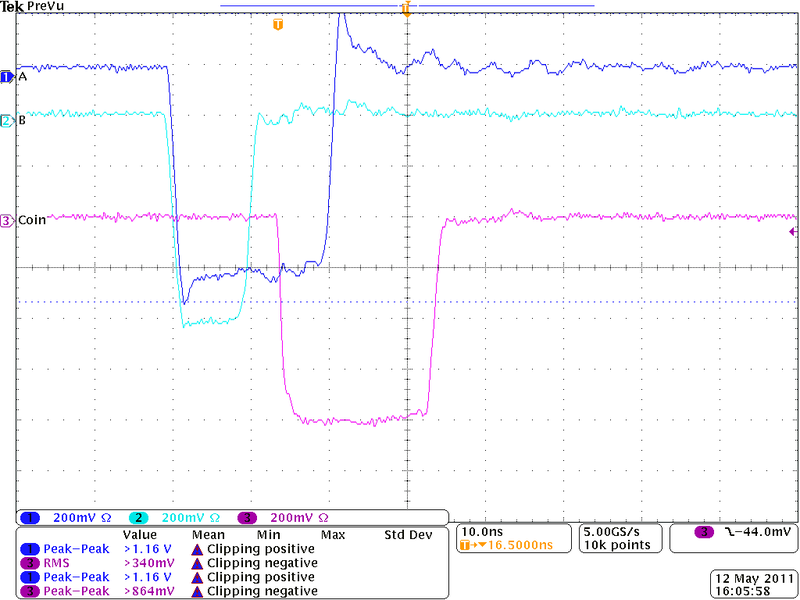05/12/2011 random coincidence cosmic test
Jump to navigation
Jump to search
The powers are:
PS1 and PS2: -1000 V (the old 2-channel TENNELEC TC952) n's: -1100 V (the new 2-channel C.A.E.N N471)
The thresholds are:
PS1 and PS2: -80 mV n's: -200 mV
The discriminator widths are:
PS1: -20 ns PS2: -10 ns n's: -20 ns
Let's do the random coincidence cosmic ray test 1.
PS1 and PS2 is about 30 cm away from each other. And let's look on the coincidence signal between PS1 and PS2:
| total counts | time | counts/min | counts/sec | |
|---|---|---|---|---|
| PS1 | 70 min | |||
| PS1 | 70 min | |||
| PS1+PS2 (30 cm away) | 70 min |
And below my scope pictures of this rear event:
Let's do the random coincidence cosmic ray test 2.
But now the distance between PS1 and PS2 is about 5 cm. And let's look on the coincidence signal between PS1 and PS2:
| total counts | time | counts/min | counts/sec | |
|---|---|---|---|---|
| PS1 | 60 min | |||
| PS1 | 60 min | |||
| PS1+PS2 (5 cm away) | 60 min |
And below my scope pictures of no so rear event as before:
So what we are measured?
- ○ purely random events from different reaction?. But why does the coincidence rate depend from distance between PS1 and PS2? Statistical fluctuation?
- ○ or probably some coincidence events caused by air shower originated from one particle nearby the two detectors. Now if detectors located closer to each other the rate should be higher because the detectors are closer to initial particle. As evidence note that rates for PS1 and PS1 for different distances are almost the same. But the coincidence rate PS1+PS2 increased almost in 3 times as distance reduced from 30 cm to 5 cm
Also Sadiq did something at that time with gamma source. Maybe that effect somehow my measurements.

